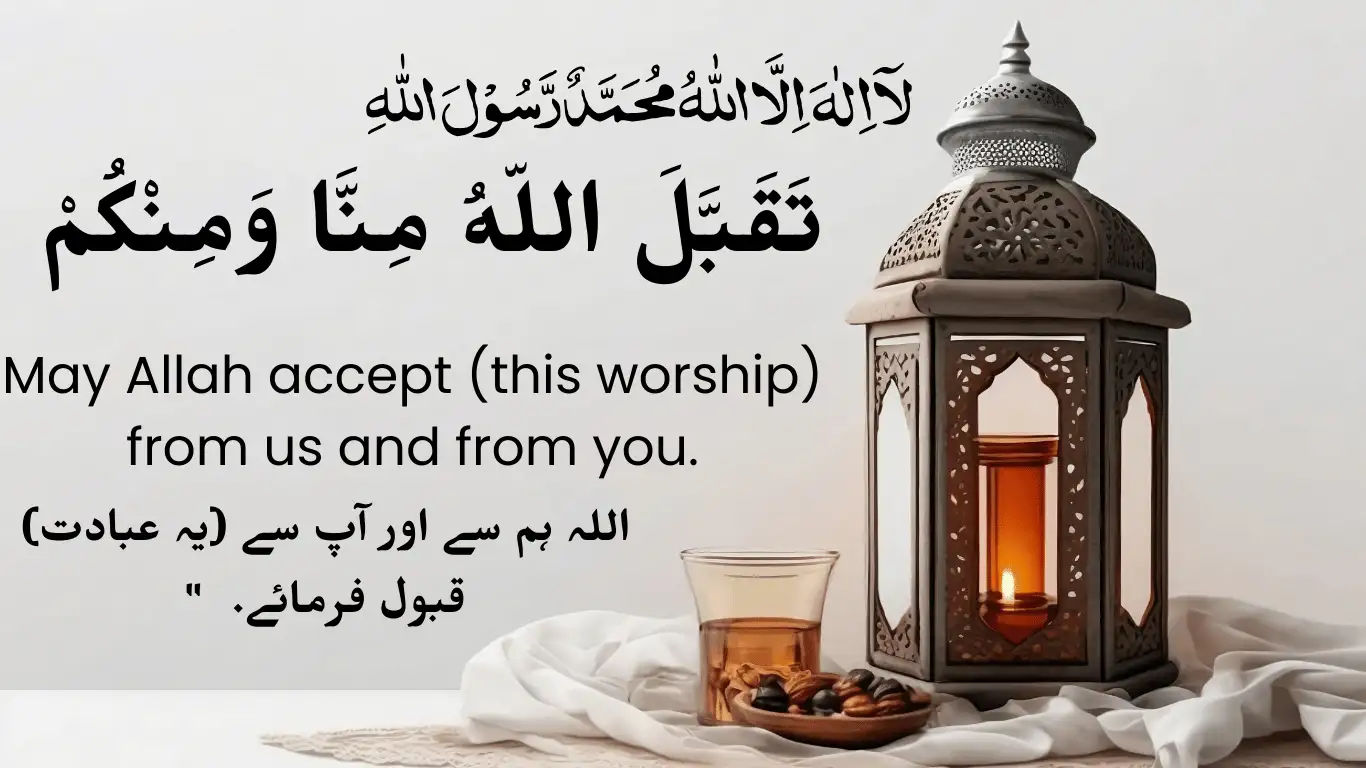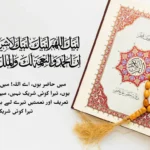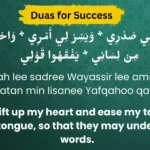The phrase Taqabbalallahu Minna Wa Minkum is a heartfelt greeting exchanged among Muslims during Eid. Rooted in Islamic tradition, this dua carries profound meanings of acceptance, forgiveness, and mutual goodwill. This article explores the phrase in detail, including its Arabic text, English and Urdu translations, its origins, and its significance in fostering unity and gratitude.
| Surah Ghafir (40:44) Wa Ufawwidu Amri ilallah |
| Innallaha Wa Malaikatahu Yusholluna Alan Nabi |
| Iman e Mufassal & Mujmal- Guide to Faith in Islam |
| Dua for Good Health- Allahumma Afini Fi Badani |
The Full Arabic Phrase
تَقَبَّلَ اللّهُ مِنَّا وَمِنْكُمْ
Translation in English
“May Allah accept (this worship) from us and from you.”
Translation in Urdu
“اللہ ہم سے اور آپ سے (یہ عبادت) قبول فرمائے۔”
Origin of “Taqabbalallahu Minna Wa Minkum”
This phrase is a traditional greeting exchanged during Eid-ul-Fitr and Eid-ul-Adha, serving as a dua for acceptance of worship, such as fasting during Ramadan or sacrifices made during Dhul-Hijjah. It is attributed to the companions of the Prophet Muhammad (PBUH), who would greet one another with these words.
Significance of the Phrase
1. A Dua for Acceptance
This greeting reminds Muslims that the ultimate goal of their worship is Allah’s acceptance. By saying these words, they express hope that their efforts in fasting, prayers, or sacrifices are acknowledged and rewarded by Allah.
2. Fostering Brotherhood
Exchanging this dua strengthens bonds among Muslims by emphasizing mutual goodwill and shared faith. It reflects the unity of the Muslim community in seeking Allah’s blessings.
3. A Reminder of Humility
The phrase encourages humility by acknowledging that acceptance of worship lies solely in Allah’s hands, fostering a sense of gratitude and modesty.
How to Use This Greeting
a. During Eid Gatherings
When meeting family, friends, or community members, greet them with “Taqabbalallahu minna wa minkum”, adding a smile to enhance the warmth.
b. In Messages and Cards
Include this phrase in Eid greetings via text messages, emails, or Eid cards to spread the joy and blessings of Eid.
c. As a Reflection
Recite this dua in personal prayers to seek Allah’s acceptance of your worship.
Related Quranic Verse
The spirit of this dua aligns with verses like Surah Al-Baqarah (2:186), where Allah says:
“And when My servants ask you concerning Me, indeed I am near. I respond to the invocation of the supplicant when he calls upon Me.”
This verse emphasizes Allah’s responsiveness to sincere supplications, reinforcing the essence of “taqaballahu wa minkum” as a heartfelt plea for acceptance.
FAQs
It means, “May Allah accept (this worship) from us and from you,” signifying a dua for Allah’s acceptance of good deeds and worship.
It is traditionally used during Eid-ul-Fitr and Eid-ul-Adha as a greeting among Muslims.
While primarily associated with Eid, the phrase can be used anytime to express a sincere dua for the acceptance of worship.
Conclusion
The phrase “taqaballahu wa minkum” beautifully encapsulates the spirit of Eid, serving as a dua that unites Muslims in faith, gratitude, and love. By exchanging this greeting, Muslims remind one another of the importance of seeking Allah’s acceptance in all acts of worship. Let us embrace this timeless tradition to strengthen our bonds, express humility, and celebrate the blessings of Eid.




